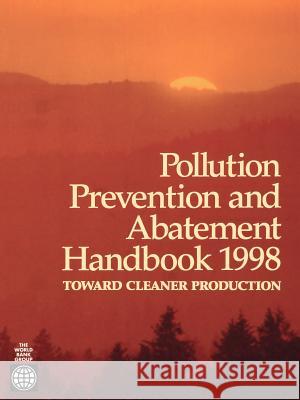Pollution Prevention and Abatement Handbook 1998: Toward Cleaner Production » książka
Pollution Prevention and Abatement Handbook 1998: Toward Cleaner Production
ISBN-13: 9780821336380 / Angielski / Miękka / 1999 / 472 str.
Quite often in developing countries, the economy progresses while the environment deteriorates because pollution control measures appear too costly to implement. What the World Bank proposes in the 'Pollution Prevention and Abatement Handbook 1998' is environmental management rather than pollution control. To accomplish this, the book recommends a broad mix of incentives and pressures to achieve sustainable improvements such as setting clear goals and objectives, agreeing on priorities, cooperating on approaches, sharing information, and setting realistic standards. The Handbook comprises three parts: a summary of key policy lessons in pollution management, good practice notes on implementation of policy objectives, and detailed guidelines intended for the preparation of World Bank Group projects. The application of the guidelines set out in Part III can minimize the use of resources as well as reduce the quantity of wastes requiring treatment and disposal. They are designed to protect human health, reduce discharge of pollutants into the environment, use commercially proven and cost-effective technologies, follow regulatory trends, and promote good industrial practices. These guidelines represent good environmental management practices, which can be achieved and maintained with the levels of skills and resources typically available in countries in which the World Bank operates. The World Bank Group in collaboration with United Nations Industrial Development Organization and United Nations Environment Programme.











